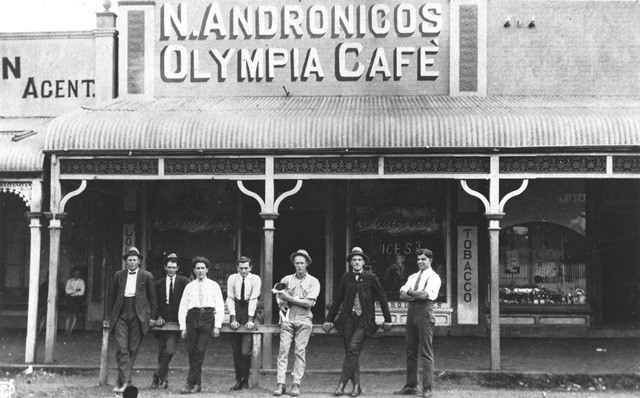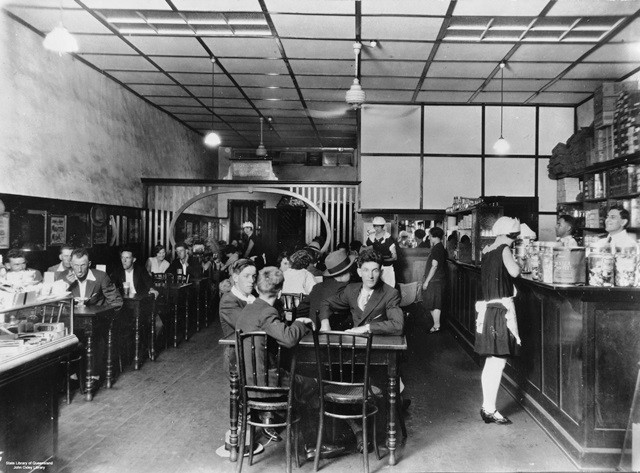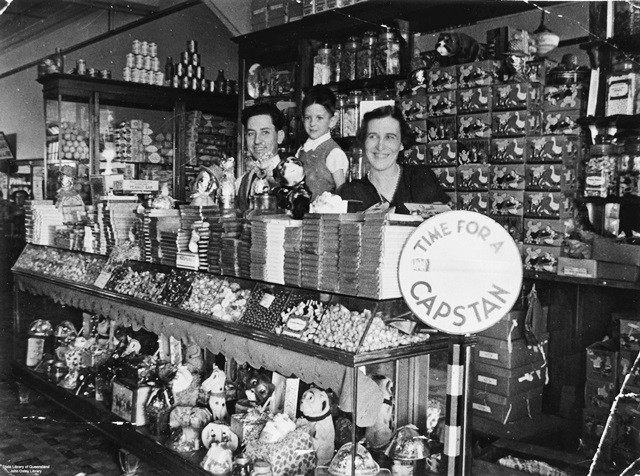Guest blogger: Toni Risson, 2016 Queensland Business Leaders Hall of Fame Fellow

Men pictured in front of the N. Andronicos Olympia Cafe, Allora, ca. 1924. John Oxley Library. State Library of Queensland Neg # 59897
The Greek café is a shared chapter in the histories of two nations: it was a pathway to success for unskilled, penniless Greek migrants, and it was a community hub where Australians socialised over milkshakes and banana splits, mixed grills and toasted sandwiches. Greek cafés are also a singularly Australian phenomenon: the success of Arthur Comino’s fish shop in Sydney gave rise to a tidal wave of chain migration that saw hundreds of Greek migrants open oyster saloons across the country by 1900. Adapting to market changes and food trends, Greek proprietors went on to run fish shops, fruit shops, ice cream parlours, sundae shops, milk bars, snack bars, confectioneries, and cafés that dotted the Australian landscape for much of the twentieth century.

Interior of Busy Bee Cafe at Kingaroy, Queensland, 2nd January, 1929. John Oxley Library. State Library of Queensland Neg #105119
Almost every town in Queensland, N.S.W. and country Victoria had a Greek café, and as many as ten operated in larger towns like Ipswich and Toowoomba during the 1930s, 1940s and 1950s—the heyday of the Greek café. Cafés were routinely open from 7am to midnight seven days a week, meals were cheap, portions were generous, and the menu was the same countrywide—they were the McDonalds of their time.

Inside the Paragon Cafe at Dalby, Queensland, ca. 1936. John Oxley Library. State Library of Queensland Neg # 41450
The success of the Greek café is evident in the size of some establishments, the length of time some shops operated, the enterprise and resilience demonstrated by expansion and diversification, and the extent to which subsequent generations prospered in the adopted homeland of their parents and grandparents. This, despite the Anglophile Australia of the first half of the century. While names like the Paragon Café suggested proprietors’ origins, and names like Niagara Café exploited the popularity of American culture, others—the Regal Café, the Australia Café, etc.—were an attempt to align businesses with Australian sentiments. Greek food was not on the menu for the same reason.
Toni Risson, 2016 Queensland Business Leaders Hall of Fame Fellow
Comments
Your email address will not be published.
We welcome relevant, respectful comments.